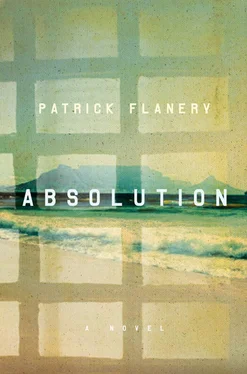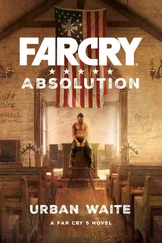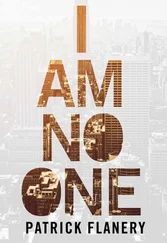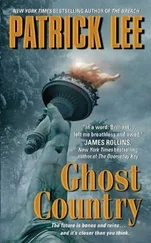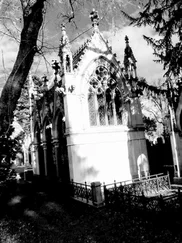The boy watched her leave in a car with a man, but he didn’t know who the man was and never saw his face. He only knew that Laura and the man had something important they had to do and that it was too dangerous for him to go with them. He never saw Laura again. If she was going to come back she would have done it by now.
She left behind the truck that was the boy’s inheritance and in the coming days he watched Timothy and Lionel and other men dig graves for all the bodies, Bernard included.
Timothy stripped the truck of its identifying marks, put on new number plates, and one of the other men left with it. The boy never saw the truck again but he didn’t care any more.
At first, when he asked them what was going to happen, Timothy and Lionel would laugh and say, You’re going to be our mascot . But as the weeks passed they didn’t know what to say and the boy reminded them that he had an aunt in Beaufort West and for days everyone talked about whether or not they should take the boy to his aunt or if that was too risky, and wouldn’t it be better just to let him stay with them because he had been born into the movement and shouldn’t he grow up in it since he was already almost a man who could be taught to shoot? Lionel said it would be wrong, that it wasn’t fair to the boy, and they should take him to his aunt.
But the boy barely knew his aunt and the others didn’t know if she could be trusted. And then he said to them, What about Laura’s parents? Laura said I could go to her mother. And her father — her father told me that if I ever needed anything …
And that was how they came to be on the woman’s front porch, staring through the screen door, and how the woman shook her head and took her daughter’s papers and said they should go.
The boy and the men stood there, the door slammed in their faces, and though they were in the shade it was a hot February day with no wind and the boy came out in a sweat all over his body and the men turned to him and told him not to worry. He stood on the porch looking up at the mountain so that he didn’t have to look at the men or at the windows of the house. He did not want to be seen or to see anyone else as he listened to the rush-hour traffic on Camp Ground Road, thinking of how it became other roads, Liesbeek Parkway, Malta Road, Albert Road, roads that curved around to the north, following the contour of the mountain, circling back to his own neighbourhood, to the house that had once, until recently, been his.
They walked back to the car and sat for a while in the shade while the men argued the boy’s fate in front of him. I think we should ask the boy , Lionel finally insisted, and when the boy was asked he said he did not want to stay with them. He wanted to go to his aunt in Beaufort West, where Laura was taking him in the first place, or not in the first place, but as a last resort, after rescuing him from the situation he had gotten himself into. Sitting in the car, he was sure it was his fault that these men had to decide what to do with him, his fault that Laura had been forced to look after him, his fault that his parents disappeared in the first place. It was his fault and his failure.
He promised he wouldn’t say anything about them to his aunt or to anyone else.
Not until all of this is over, not until, you know, all of this is history, my friend , Timothy said.
They would leave him on his aunt’s doorstep. If anything went wrong, if his aunt refused to take him, if he felt he couldn’t live with her after all, they gave him a number to phone, and someone would come get him.
You drove for the rest of the day and into the night until, an hour’s walk from the border, you abandoned the truck and began following your compass to a place where you hoped you would be able to slip out of the country unnoticed.
The mountains were dry and the scrubby trees old and thickening. As you walked a mist settled in the depressions, wafting through the low branches. A light wind was coming from the south-west, but the sky above was clear and would be bright for another few hours. If you kept your pace, you would reach the border well before dawn.
As you walked, your thoughts began to fill with the deaths of others, and your own inevitable death, and the absence of Sam — an absence you felt in the weight of the bag on your back, the mesh of red vinyl bearing into you, opening and inhabiting you. The thought of deaths you had caused — the deaths for which you alone were ultimately responsible — filled the whole of you, was played into fullness by a song beating through your memory. You were deep inside yourself, absorbed, death filling you past the point of contentment, erfüllte sie wie Fülle , sweetened by the thought of your own death, the death that must come, that might arrive within the hour or the next day.
Your sandals hit the first bale of razor wire before you saw it, but you stepped back in time to keep from lacerating your hands. You took the rucksack from your shoulders and put it on the ground, listening for any noise. Digging to the bottom of the red vinyl cavity, you found wire cutters and a pair of thick leather gloves, then returned the pack to your shoulders and began cutting through the bale until you could pull the two ends apart and pass through. You had trained for this, cutting through heavy wires, and the muscles of your hands were strong and responsive. You knew there might be multiple lengths of baling, each separated by a treeless stretch of land. On the other side you paused, turning your ears to the wind and then sheltering them, listening in the vacuum. There was no sound apart from the wind. Moving forward, you tried to walk a straight line from the first bale but had no idea how far apart the lines might be. Your heart began to race as the sounds of your footsteps and pulse thundered in your head. The mist was too thick to see beyond the end of your arms and your lungs were filling with the damp air. After five minutes your feet met another bale. You cut through this as well, opened a passage, and began walking again. Five minutes later, another bale, and then another after that. You worried that you might have turned, that you were walking parallel with the border rather than across it — that there might be perpendicular sections of baling designed for the very purpose of confounding anyone trying to cross. You remembered your compass. Its glowing green dial confirmed you were still moving towards freedom. After another two lines of baling you began to lose hope, and fell to your knees, exhausted, heart echoing, your breath irregular, labouring under the damp rucksack. Only the ground immediately around you was visible. Your watch said it was two, but it felt much later. There were places, some said, where watches did not work.
When you tried to stand, you found you could not, and had to crawl. At least at dawn, you thought, I will see where I am. You crawled for an hour, always south-south-east, but came to no further bales. Your mouth was dry, joints aching. Finally you managed to stand and, as you did, lights exploded from the right. A man shouted. A dog barked.
And then the man and the dog were upon you.
You could not recall how many days it had been; perhaps five, perhaps as many as fifteen hundred. You had been deprived of any means of recording the passage of time, and living permanently inside, in a windowless cell, with transitions down windowless corridors, to other windowless rooms, windowless showers, windowless examination chambers, all lit by the same orange lights, you could not say how many days it had been since you had last seen the sky and the sun. And the sun! The shock of its brilliance initially left you blind. They had placed you supine, your face burned in hard sunlight, so that instead of examining the world, to be sure it was still as you remembered it, you had to close your eyes against the glare; although compared to the time you had spent inside, those moments of closing your eyes against the sun and seeing the orange brilliance through your greyed lids was no more than a pause. It was a relief, after the stagnant air of the prison, to breathe ocean winds, to feel the sun heating the length of your body, so that even the constraints that held you in place were almost forgivable, and the fact that your spine and legs were supported by nothing more than a slender metal pole, no thicker than your own wrist, almost forgettable for the first minutes. You could taste salt in the air, and shout if you wanted to, but you had long since lost the courage to shout, and dared only to whisper to yourself, barely moving your lips, the salt on them sharp white flowers. They had closed the cage and trudged off, up the dunes, and you were left listening to the waves breaking down the beach, and when the wind shifted, the voices of others like you, whispering to themselves, whimpering, crying silently, and then a throttled scream.
Читать дальше
